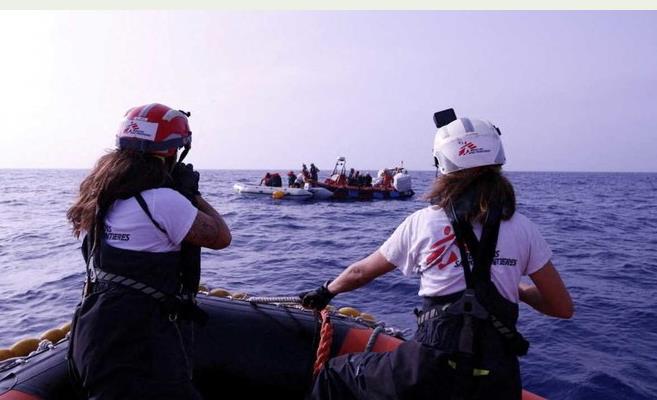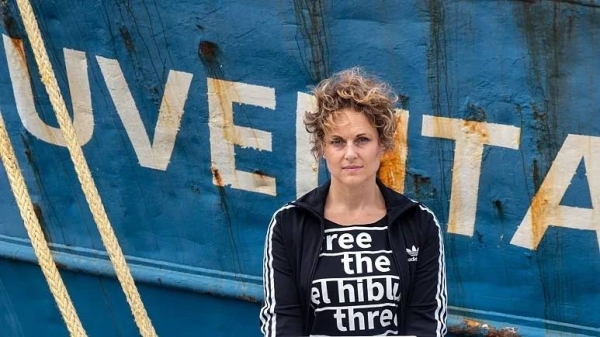
The Director-General of the International Organization for Migration (IOM), William Lacy Swing, said around 3,000 migrants were lost in the Mediterranean last year, while about 21,000 were rescued and nearly 120,000 have crossed the Mediterranean into Italy.
In an interview with Asharq Al-Awsat newspaper, Swing said that there were at least nine armed conflicts in West Asia, North and West Africa, and millions of people needed assistance, which affects the migration rate.
He noted that while government data was available, the IOM has developed its own means to track illegal migration.
In 2017, about 119,310 migrants crossed the Mediterranean into Italy, 34 percent less than the previous year, Swing said. He added that 2,832 people were lost in the sea last year and 20,385 have been saved.
He also said that 29,000 displaced people were stranded on the shores of Spain and some 20,000 on the coast of Greece. All this happened in 2017, according to Swing.
Stressing that migration should not be a problem for governments, the IOM director-general said the issue should be addressed taking into consideration its humanitarian nature, by drafting new legislation and putting in place mechanisms to avoid the suffering of the migrants.
He noted in this regard that migrants, who represent 3.5 percent of the world’s population, contribute to 9 percent of the world’s GDP.
In his discussion with Asharq Al-Awsat on the sidelines of the first Riyadh Humanitarian Forum, Swing criticized countries that have imposed restrictions on the entry of migrants, expressing regret for such measures.
The organization was established in 1951 to address migration problems caused by World War II and is now the leading organization of migration at the United Nations, according to Swing.
He emphasized that the organization was working to support the use of resources to address the growing challenges of displacement and migration and to facilitate migrants’ access to employment opportunities.
The IOM official described the organization’s relationship with Saudi Arabia as “distinctive”.
“We are grateful to the Saudi government and the King Salman Humanitarian Aid and Relief Center for the humanitarian support we receive. We have received $49 million to support our activities in Syria, Iraq, Yemen, Somalia and for the Rohingya people. We hope that cooperation in various sectors will continue, not only at the humanitarian level, but also in migration; we are optimistic about the future and we are here today to support Saudi efforts,” Swing said.
Commenting on some countries’ decision to impose restrictions on migration and immigration, such as the United States, William said that unfortunately the phenomenon of anti-immigration was growing. He noted that instead of building bridges, some countries were building walls, describing such actions as wrong because they endanger the lives of migrants and conceal the contribution of migrants to the development of these countries.










